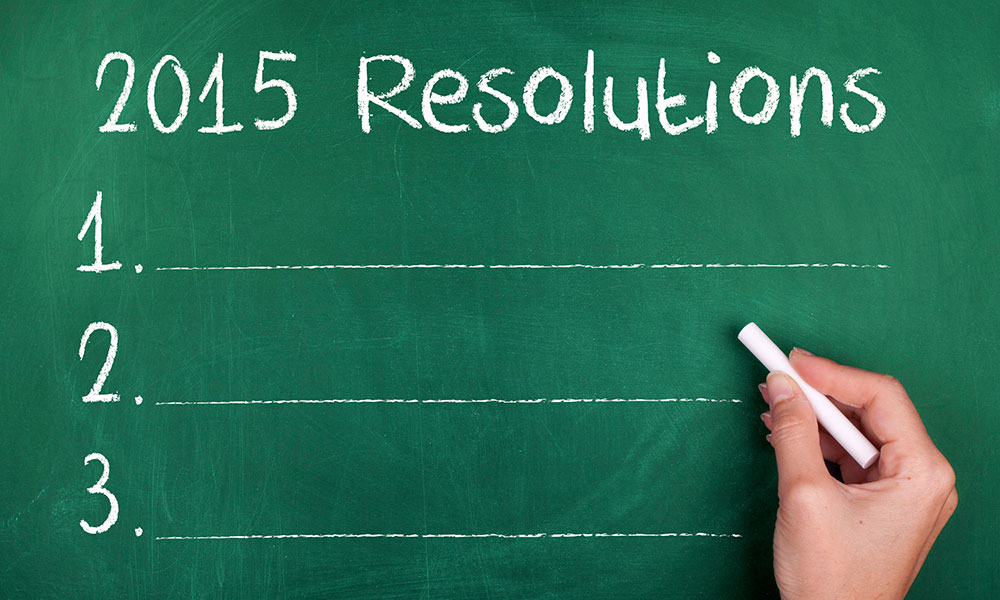
Tips For Making Your New Year’s Resolutions Stick
A new year brings with it myriad resolutions aimed at improving a person’s health, lifestyle, and worldview. But how long can you stick to them? The American Psychological Association shared some tips.
A new year brings with it myriad resolutions aimed at improving a person’s health, lifestyle, and worldview. But how long can you stick to them? The American Psychological Association shared some tips.
We’re almost a week into 2015, so we think this is a fair question to ask our readers: How many of you have already given up on your New Year’s resolution?
If you’re slowly raising your hand, don’t feel too bad: According to a 2002 study published in the Journal of Clinical Psychology, nearly 30 percent of the people who make a resolution will have given up on their goal by the end of week two, and more than half will have fallen off track by June. And a recent Marist Poll survey [PDF] of 1,140 American adults found that 41 percent did not keep their 2014 resolution. Still, 44 percent said they planned to make a resolution for 2015.
So, how can we make our resolutions stick?
“Setting small, attainable goals throughout the year, instead of a singular, overwhelming goal on January 1, can help you reach whatever it is you strive for,” psychologist Lynn Bufka, Ph.D., said in a recent article on the American Psychological Association website. “Remember, it is not the extent of the change that matters, but rather the act of recognizing that lifestyle change is important and working toward it, one step at a time.”
Making realistic resolutions is a start, but APA offered several other tips when considering a New Year’s resolution:
Make incremental change. Try changing one unhealthy habit or behavior at a time. “Don’t get overwhelmed and think that you have to reassess everything in your life,” APA suggested. “Instead, work toward changing one thing at a time.”
Talk it out. Involve family and friends who can keep you honest and on track with your resolution. Join a support group like a workout class at a gym or a group of coworkers trying to quit smoking. “Having someone to share your struggles and successes with makes your journey to a healthier lifestyle that much easier and less intimidating,” according to APA.
Don’t get down on yourself. It’s a cliché, but remember that no one is perfect. Missteps are bound to happen, so it’s important to stay positive and not give up. “Everyone has ups and downs,” APA said. “Resolve to recover from your mistakes and get back on track.”
If needed, seek professional support. Trying to keep a resolution can lead to increased stress. Seeking professional help is always an option. “Psychologists are uniquely trained to understand the connection between the mind and body,” APA said. “They can offer strategies as to how to adjust your goals so that they are attainable, as well as help you change unhealthy behaviors and address emotional issues.”
Do you have tips for keeping New Year’s resolutions? Share them with us in the comments.
(iStock/Thinkstock)






Comments